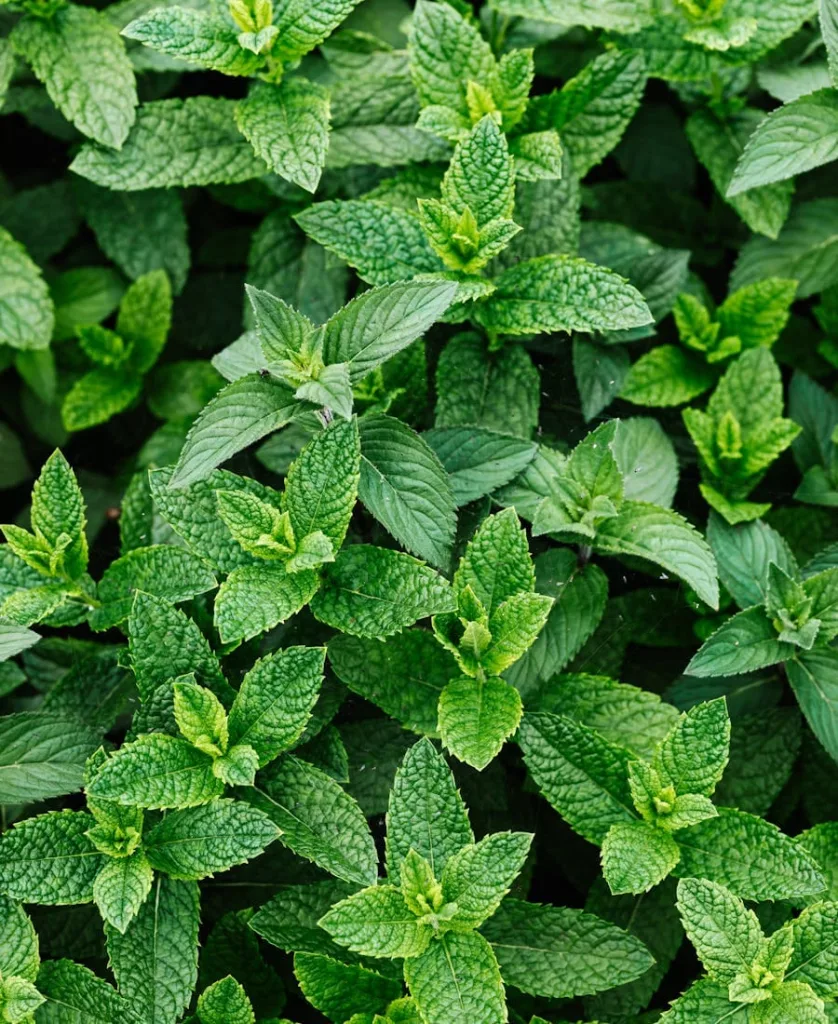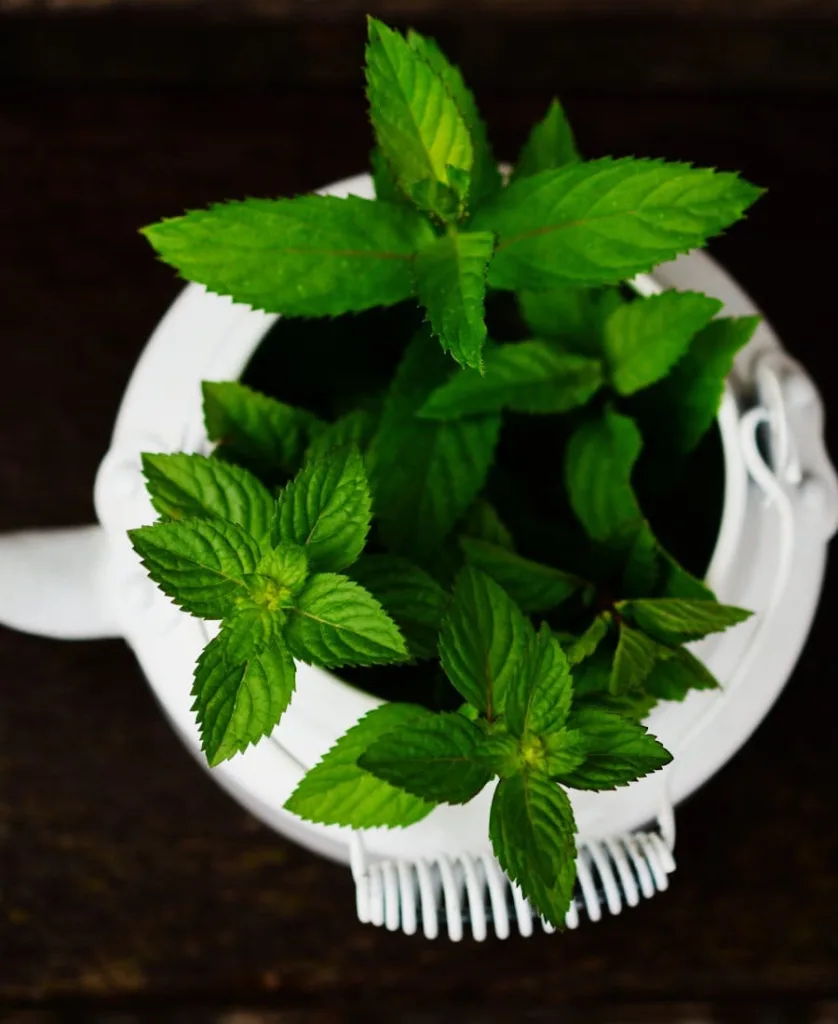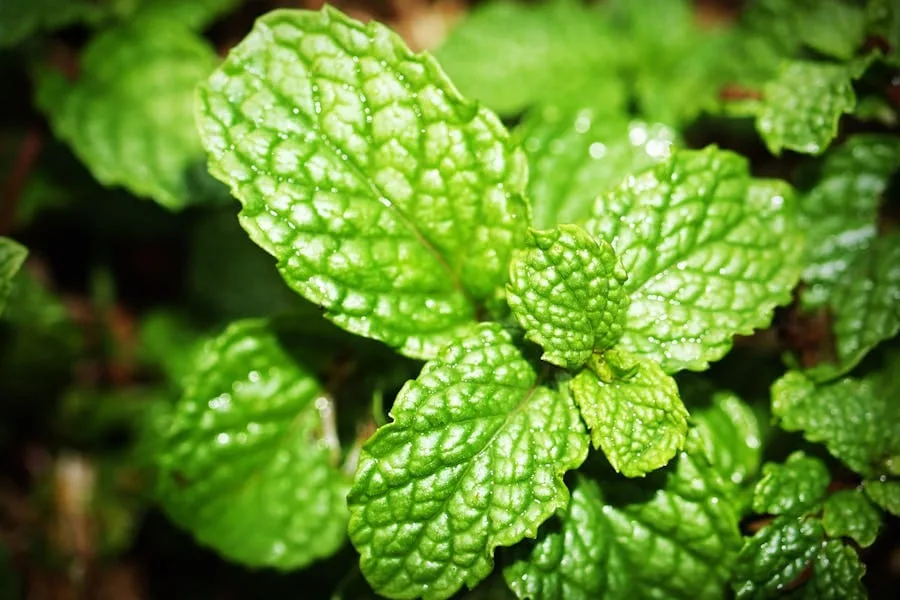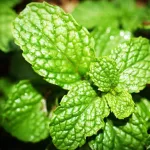Peppermint holds a significant place in various cultural traditions for its spiritual properties, often associated with purification, healing, and transformation.
This aromatic herb, with its refreshing scent and cooling properties, has been used for centuries in rituals and spiritual practices to cleanse spaces, objects, and individuals of negative energy.
Its strong, invigorating aroma is believed to stimulate the mind, promote clarity, and bolster the spirit, making it a popular choice in practices aimed at enhancing mental and spiritual awareness.
Throughout history, different cultures have recognized the spiritual significance of peppermint, incorporating it into healing rituals and ceremonies.
It is commonly used in the form of leaves, essential oils, or sprays, and is considered a versatile tool in the realm of spiritual growth and protection.
Besides its cleansing effects, peppermint is also valued for its purported ability to protect against harmful influences, such as the evil eye, and to assist in overcoming spiritual fatigue.
As a plant that seamlessly bridges the natural and the spiritual realms, peppermint is a go-to herb for those seeking to invoke a sense of renewal and to energize their spiritual journey.
By creating a positive and purified environment, peppermint is often integrated into meditation practices, spiritual healings, and protection rituals, contributing to the holistic well-being of body, mind, and soul.
What does peppermint symbolize?

Peppermint has long been associated with a variety of spiritual and symbolic meanings. Historically, it has been considered a cleansing herb, thought to purify spaces and objects.
Its crisp, rejuvenating scent is emblematic of mental clarity and vitality, making it a popular choice for inclusion in various holistic practices.
Symbolic Meanings of Peppermint:
- Purification: The herb is often used to clear negative energy and invite a fresh, positive atmosphere.
- Healing: Peppermint’s medicinal qualities transfer into the spiritual realm, where it represents physical and emotional restoration.
- Peace and Serenity: It is linked to tranquil energies, helping to reduce stress and bring about a sense of calm.
- Vitality: With a history of being used for its invigorating properties, peppermint is a symbol of spiritedness and enduring life force.
In addition, peppermint’s fresh scent is indicative of new beginnings and growth, whether it be in a garden or within one’s spiritual journey.
Its green leaves also symbolize nature and the connection to the earth, grounding individuals in their environment.
Throughout various spiritual traditions, peppermint is consistently seen as a beneficial plant, aiding in practices from meditation to healing rituals.
It is respected for its ability to improve mental focus and support emotional balance, making it a versatile symbol in the spiritual community.
Read too: Dragon’s Blood Spiritual Meaning: 9 Good Meanings
What is the spiritual effect of peppermint?
Peppermint is frequently associated with several spiritual effects valued in various traditions. The herb is often thought to encompass the following properties:
- Purification: It’s believed to help cleanse spaces and auras, creating an environment conducive to spiritual work.
- Healing: Historically used for its medicinal properties, peppermint is also considered to promote spiritual healing.
- Mental Clarity: The scent of peppermint is said to clear the mind, aiding in concentration and meditation practices.
- Love and Prosperity: There is a belief that peppermint attracts positive energies related to love and abundance.
- Protection: Some use peppermint as a tool for spiritual protection, repelling negative energies.
- Spiritual Growth: Its use in meditation and other spiritual practices can be aimed at enhancing spiritual growth and a deeper connection with the divine.
Individuals may experience these properties in different ways:
- Sensory Experience: Smelling peppermint might invoke mental sharpness or remind one of the presence of a loved one.
- Spiritual Rituals: Incorporating peppermint into rituals can signify an intent to purify, protect, or heal.
The sharp, penetrating scent of peppermint is often seen as a physical manifestation of its more subtle spiritual benefits.
It’s used with the intention of opening the senses, and by extension, one’s spiritual consciousness.
Peppermint Spiritual Meaning
1) Clarity and Enlightenment
Peppermint is often associated with mental clarity and enlightenment. Its invigorating scent is known to stimulate the mind, encouraging clear thinking and heightened perceptual awareness.
Individuals may use it during meditation or spiritual practices to facilitate a more profound connection to their inner self and the universe.
2) Healing and Purification
Historically, peppermint has been revered for its healing properties. It is commonly used in spiritual rituals to cleanse a space or individual of negative energies, thereby promoting a sense of renewal and purity.
This herb supports emotional and spiritual healing, helping to mend the metaphysical aspects of the self.
3) Protection and Love
Peppermint’s spiritual implications extend to fostering an environment of protection. It is believed to ward off harmful intentions and energies.
In parallel, it is associated with attracting love, opening the heart to receive and give affection, and maintaining healthy relationships rooted in mutual understanding and compassion.
4) Prosperity and Success
Within various traditions, peppermint attracts prosperity, abundance, and success. It’s used in spells or affirmations geared towards financial gain or career advancement.
Its essence is believed to draw in positive forces that contribute to the achievement of one’s goals.
5) Psychic Abilities and Divination
The strong aroma of peppermint is linked to enhancing psychic abilities. Practitioners may utilize it to bolster their intuitive insights and increase the efficacy of divination tools.
Peppermint is thus a valued element in the practices of those seeking to expand their psychic horizons and knowledge.
If you are enjoying reading this, you will definitely enjoy reading Spiritual Meaning Of Pickles (Good Informations For You)
Color Energy of Peppermint

Peppermint is often associated with the color green, which is known to carry with it a wealth of energetic significance.
Green, as the color of living plants and the natural world, encapsulates the essence of growth, renewal, and balance.
In the context of color energy, peppermint’s green shade reflects its capacity for healing and revitalization.
Energetic Associations of Green:
- Healing: Green is a color that promotes health and well-being.
- Growth: It symbolizes growth, suggesting peppermint’s role in personal development.
- Balance: Associated with equilibrium, the color can help restore harmony.
Peppermint and Chakras:
In chakra practices, green is closely linked to the heart chakra, which is the center for compassion and love.
Peppermint, through its green vibration, is believed to aid in opening and balancing this chakra, fostering an environment of emotional healing and the capacity to give and receive love.
- Heart Chakra: Green energy aids in balancing this chakra.
- Emotional Harmony: Supports emotional stability and compassion.
The color green also resonates with abundance and prosperity, attributes that are frequently attributed to peppermint.
This energetic connection is further fortified by the plant’s vibrant, refreshing aroma, which invigorates the spirit and emboldens the mind, providing clarity and promoting a sense of peace.
In sum, the color energy of peppermint is multifaceted, contributing to its varied spiritual applications.
Peppermint’s green hue is more than a visual attribute; it’s an integral part of the herb’s identity, imparting a range of beneficial energetic qualities.
Peppermint in Historical and Cultural Context
The historical and cultural tapestry of peppermint is rich with symbolism and significance, spanning from its ancient uses in Egypt and Greece to diverse global interpretations in spiritual practices.
Ancient Uses and Symbolism
In Ancient Egypt, peppermint was not only a culinary and medicinal herb but also held spiritual importance.
The Egyptians used it in their rituals and believed it to have cleansing properties.
Hieroglyphics indicate its use in burial practices, possibly for its pleasant scent and supposed ability to ward off evil spirits.
Moving to Greece, peppermint was intertwined with the myth of Persephone and Hades. A symbol of hospitality, it was also employed in sacred ceremonies.
The Greeks believed that peppermint could ease communication with the divine, a practice hinting at its deeper spiritual connections.
Cultural Significance Across the World
Beyond Ancient Greece and Egypt, peppermint’s spiritual influence stretches across various cultures.
- In Eastern traditions, it is esteemed for attracting good luck and is used in practices aimed at energy cleansing.
- In Western contexts, it’s employed in modern spiritualism as a tool for purification and renewal.
This global reverence underscores a shared belief in peppermint’s ability to refresh not just the body but the spirit.
Peppermint in Mythology
Mythologically, peppermint ties into narratives that underscore its vitality.
Aside from Greek myths involving Persephone, where its scent is linked to the eternal, it is also brought up in lesser-known stories that highlight its use as a protective and clarifying herb.
Such tales reinforce peppermint’s status as an herb of significant spiritual heft.
Utilization of Peppermint in Spiritual Practices
Peppermint is incorporated in spiritual practices for its purification qualities and ability to enhance spiritual growth. Its use ranges from structured rituals to personal meditation sessions.
Rituals and Ceremonies
Peppermint is often integrated into spiritual rituals and ceremonies to instill a sense of purification and cleansing.
It is sometimes used as an alternative to sage for smudging, with the aim of clearing negative energy and promoting positive vibrations.
During these practices, peppermint’s essential oil may be diffused or its leaves burned to encourage spiritual benefits such as enhanced focus and the creation of sacred space.
Meditation and Spiritual Healing
In meditation and spiritual healing contexts, peppermint is valued for its ability to bring about mental clarity and soothe the energy field.
Individuals might anoint themselves with peppermint essential oil to support spiritual growth and heighten meditative states.
This practice is said to help realign one’s spiritual journey, allowing for deeper introspection and a rejuvenated spirit.
Energy Work and Chakras
Peppermint is associated with energy work, particularly with reference to the chakras. It is believed that peppermint can help to stimulate the chakras and promote energetic flow throughout the body.
A common practice involves applying diluted peppermint essential oil to specific chakra points to cleanse and balance them, contributing to overall positive energy within and around the individual.
Before you leave, read Juniper Berries Spiritual Meaning (9 Messages For You)
Final Words

In understanding the spiritual significance of peppermint, one recognizes its multifaceted role in various traditions and practices.
Its significance is evidenced by its recurrent mention for healing, protection, clarity, and cleansing properties.
Peppermint stands out in its ability to promote physical and emotional healing, symbolizing vitality and purity.
Practitioners often incorporate this powerful herb in spells and rituals to harness these properties.
- Healing: It is associated with promoting health and well-being.
- Protection: Believed to create a barrier against negative energies.
- Clarity: Often used to clear the mind and enhance alertness.
- Cleansing: Employed in purifying spaces and the aura.
This herb is not only appreciated for its medicinal benefits but also revered for its spiritual potency.
It has been a component of spiritual practices aiming to increase intuition, and even to attract prosperity and love.
In essence, peppermint is far more than a culinary additive—it’s a plant steeped in spiritual meaning, with its uses continuing to evolve within contemporary spiritual communities.








